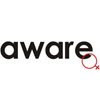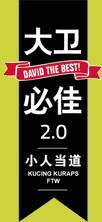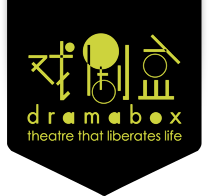
AWARE and Social Activism
Contributed by AWARE
On November 25, 2011, at the launch of AWARE's Sexual Assualt Befrienders Service, Law Minister K Shanmugam announced that he intended to repeal Section 157(d) of Singapore's Evidence Act.
A part of Singapore's legislation since the colonial period, this Section states that "when a man is prosecuted for rape or an attempt to ravish, it may be shown that the prosecutrix was of generally immoral character". This means that an alleged rape victim may find her sexual history – her personal relationships, the number of people she has had sex with, etc - being used to undermine her credibility in court. In 2012, this Section was officially repealed, following strong support from many Members of Parliament.
The repeal was a direct result of AWARE's advocacy work. We had highlighted the deeply sexist connotations of this law in our own research reports, and then to members of the media, in public forums, and, finally, to the Law Ministry. The repeal, in other words, is a clear example of how social activism played a pivotal role in raising awareness about an issue, campaigning for change, and ultimately, in this happy instance, achieving a significant milestone for gender equality in Singapore.
Social activism, of course, has a troubled history in Singapore, and civil society still has a long way to go in terms of strengthening its voice and professionalising its methods of advocacy. It is also true, however, that in this current climate of the ‘new normal', things are starting to shift in an encouraging direction, with the Government showing an increased receptivity to feedback from civil society groups.
There are also long-established communication avenues for civil society in Singapore. These include contributing letters to the mainstream media, as well as submitting feedback to government bodies. In 2011, for example, AWARE began submitting policy recommendations pertinent to gender equality, in response to the Government's call for feedback for the Singapore Budget. This has now become an annual exercise, and one we hope will eventually encompass feedback from more NGOs.
These communication platforms are far from perfect, of course, and still come with many constraints and challenges. But it seems likely that the situation will continue to improve, particularly with the mushrooming of new-media news outlets that are sympathetic to social causes.
Furthermore, these more traditional avenues are now buttressed by many other alternative platforms, thanks to the rise of social media and accessible web-publishing tools. AWARE, like many NGOs here, is now able to reach out to a wider public through our website, Facebook page, and social-media campaigns.
But, ironically, one of the greatest challenges now facing activist groups like AWARE, also stems from the dominant role of the Internet when it comes to shaping discourse and behaviour. In an era where it has become increasingly easy to broadcast one's opinion, preferably in under 140 characters, speaking out can easily become mistaken for taking action.
But ‘Liking' something on Facebook is not the same thing as getting involved. Internet chatter is, ultimately, no substitute for showing up and really participating in the messy business of social activism. Making something a Trending Topic on Twitter is not even close to a sustained examination of an issue.
In a country with a weak tradition of civic involvement, civil society groups face the very real danger of failing to recognise that they are only preaching to the converted. How do we find meaningful ways to engage with people who have not heard our message? How do we practise the art of persuasion when polemics have become the easiest way to get attention? How do we convince a new generation that there is still so much more to do – so much more they can do? These are not questions that can be solved by technology. As we step into the brave ‘new normal' world, these are issues that will define the development of civil society in Singapore.

|
Founded In 1985, AWARE is Singapore's leading gender equality advocacy group. AWARE believes in the rights of women and men to make informed and responsible choices about their lives and to have equal opportunities in education, marriage and employment, and in the right of women to control their own bodies, particularly with regard to sexual and reproductive rights. AWARE is dedicated to removing gender-based barriers, and works to identify and eliminate these barriers through research and advocacy, education and training and support services. For more about AWARE, visit aware.org.sg |

Win a pair of David The Best 2.0 Kucing Kuraps FTW tickets worth S$58 each!
Share a personal story on the power of the little, on Drama Box's Facebook page now. Story that garners the most "Like" will win a pair of David The Best 2.0 Kucing Kuraps FTW tickets worth S$58 each!
- Submission deadline: All stories to be submitted before 30th September 2012.
- In case of dispute regarding contest winner and prize, the decision of Drama Box shall be final.
*Note: David The Best 2.0 Kucing Kuraps FTW is performed in Mandarin without English surtitles!

